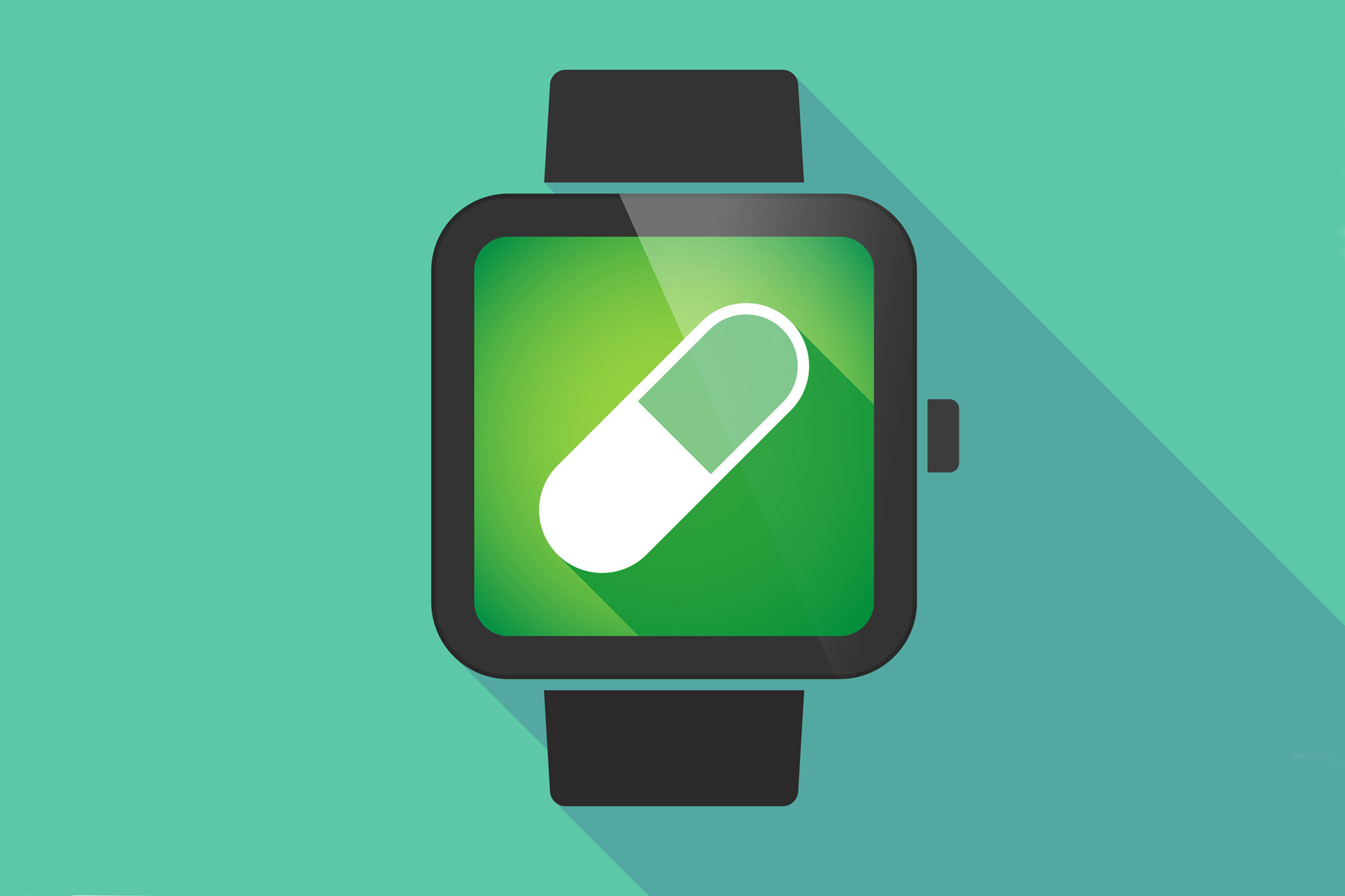The U.S. Food and Drug Administration recently approved a new digital pill capable of monitoring whether individuals are taking a prescribed medication. People not taking their medications – especially those with chronic conditions – is a major national health problem that costs about $300 billion a year in additional treatments and hospitalizations. The high-tech digital pill will be available in a limited number of health plans starting next year. But it is already raising concerns about healthcare providers and insurance companies gaining greater access into patients’ personal lives. Associate professor of pharmacy practice Nathaniel Rickles, an expert in medication adherence issues, discusses the new pill and its potential impact.
Q. What is this new digital pill and what is it intended to do?
A. On Nov. 13, Otsuka Pharmaceutical received approval for a new formulation of their antipsychotic and mood stabilizer, aripiprazole, that embeds an ingestible sensor within the pill. As the new pill, Abilify MyCite, dissolves in the stomach, the sensor is activated and sends a signal to a patch worn on the patient’s arm. Data that the pill was consumed is then forwarded to an app on the patient’s smartphone that keeps track of compliance. Patients can also consent to have their information transmitted to their caregivers and physicians through a web-based portal. The goal of the new formulation is to improve medication adherence for those needing aripiprazole, and to make sure caregivers and healthcare providers are informed about a patient’s medication adherence in a timely manner.
Q. How extensive is the medication adherence problem in the U.S. and why should we be concerned?
A. Medication non-adherence is a serious and pervasive problem among many medication classes, especially those involving chronic medication use. Individuals who do not take their medications as prescribed are at greater risk for poor clinical outcomes, such as increased morbidity and mortality. It has been estimated that approximately 40-50 percent of individuals on one or more chronic medications are not taking their medications regularly as prescribed. Medication non-adherence is a particular problem and concern among those with schizophrenia, bipolar illness, and severe depression. Patients with these psychiatric conditions often lack insight into the severity and consequences of their illness ,and have cognitive challenges (tiredness, confusion, etc.) that affect their taking of medications as prescribed. When inadequately treated, patients with these conditions are more likely to be hospitalized and/or experiencing safety issues for themselves and possibly others.
Q. The digital pill is being introduced as a voluntary option for patients with schizophrenia, bipolar disorder, or as an additional treatment for adults with depression. Could its use be expanded to a broader segment of the general population?
A. Yes, absolutely. This could have broad implications for conditions that are very costly in terms of clinical and economic outcomes when non-adherence occurs. The challenge will be ensuring the ingestible sensor technology doesn’t affect any of the pharmaceutical properties of the base medication. Given the added expense of the technology, I think the scope of drugs incorporating this technology will be relatively small, and will involve high risk groups at first. Perhaps later it will involve a larger group of medications, especially when the technology gets less expensive.
Q. What do you like about this new pill and what concerns do you have about it?
A. On the positive side, it allows for the earlier detection, monitoring, and intervention of non-adherence among high-risk patients for whom non-adherence could have a significant clinical and economic impact on individuals and communities.
On the negative side, the monitoring system requires patients to wear a patch so that compliance data can be transmitted to a smartphone. That means a patient who may already have problems remembering to take their medication now also has to remember to wear their patch. This can be a significant challenge for a population that may already be struggling with compromised memory, motivation issues, etc. It also could make patients who already have delusions of being watched, feel more watched and paranoid.
Because the medication is embedded with the ingestible sensor, it will likely be very expensive and could increase treatment costs for some individuals. This new formulation has particular value if the individual who uses it is at high risk of re-hospitalization and therefore taking it saves a future hospitalization and related costs. If an individual does not have a history of prior hospitalizations for non-adherence, taking this expensive medication could drive up costs for that low-risk population. There is some worry that such high level and close monitoring will cause insurers and others to take punitive actions against individuals for non-adherence. Will this type of close monitoring cause individuals to lose insurance or medication coverage if they are non-adherent?
There is also the concern that a person’s privacy is being violated with this new technology. Individuals are already reporting being annoyed that their pharmacies constantly call them to remind them to pick up medication. At what point do we say an individual’s personal choice and actions need not always be discoverable and subject to review? Punitive actions by insurers and privacy intrusions are probably the two key concerns that consumer advocates are most worried about. It might be okay if people who agree to be monitored this way can dictate who monitors them, and if there are rewards for being monitored. However, please keep in mind that those who are open to the use of such technologies may already be the ones likely to be adherent anyway. The use of this sensor technology will most definitely require careful consent procedures.
Q. What other options are available or under development to help improve medication adherence?
A. Otsuka Pharmaceutical and several other pharmaceutical companies have recently developed long-acting antipsychotic injectable formulations that can be administered once a month, or in the case of at least one new antipsychotic, can be injected once every three months. Aripiprazole, the compound in Abilify MyCite, is also available as a long-acting injectable (Abilify Maintena). The advantage of this approach is that it doesn’t require daily doses of medication, which can improve adherence considerably. Abilify MyCite does not help with the challenge of daily use; just the monitoring of it.
The downside of the injections is that they require patients to go to a clinic or pharmacy to receive them, and some individuals prefer not to receive injections because they feel they are painful and/or they have other concerns. The injections are also costly compared to oral medications. There are many solutions out there to help individuals remember to take their medications. These include: pillboxes that help individuals organize and remember to take medications during different times of the days of a week or month; watch alarms; and expensive pill stations that are filled weekly or monthly and can be remotely monitored for pills not taken. There are also prescription bottles with caps that change color when individuals are late to open the bottle; and sensors embedded in the caps of medication bottles that transmit bottle openings to apps or remote dashboards for provider/pharmacy monitoring. In addition, most pharmacies offer automated reminders to pick up medications.



